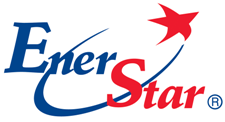A key part of EnerStar’s Operations and Maintenance Plan includes the periodic inspection of over 28,000 distribution and transmission poles installed within our service territory. This process involves more than just a simple ‘knock, knock, knock on wood.’
“Pole testing is part of a co-op’s hazard recognition program,” said Greg Hollingsworth, EnerStar’s Manager of Engineering and Operations. “It helps us proactively replace poles that have deteriorated due to weather and other elements before any issues arise. This is crucial for safety and maintaining reliability.”
According to Hollingsworth, some signs of pole damage are visible, and lineworkers are trained to always test a pole's soundness by knocking on it with a large hammer or mallet before climbing.
EnerStar’s annual pole testing plan is essential for maintaining the integrity of the EnerStar grid by addressing poles that may not show visible damage. This year, Lee Inspections will conduct thorough inspections to identify hazardous poles.
In 2025, inspections will occur at the Ferrell and the Martinsville substations.
For overhead inspections, Lee Inspectors will visually examine poles, wires, transformers, and cross arms for damage. Additionally, they will drill into and test poles as needed at and below ground level to assess their structural soundness. Guy guards and animal guards may be added where appropriate. All this is to ensure compliance with the National Electric Safety Code.
Co-op members in the inspection areas, particularly in remote locations where rights-of-way and poles are situated, should be aware that they may occasionally see a crew working around poles and digging in the ground. Lee Inspections staff will be easily identifiable, wearing hard hats, vests, or similar gear, and their vehicles will display appropriate identification. If there are any doubts, members are encouraged to call the co-op office to confirm the work done in their area.
Hollingsworth noted that the expected lifespan of a pole is about 45 years. “If you manage to get more out of it, that's great and is not uncommon,” he said. He also encouraged members to report any signs of damage to poles serving their homes or farms. “They might notice large woodpecker holes or evidence of animal nests in the pole, which are not good signs. Additionally, if a pole appears to be leaning when it didn’t used to, that could indicate it’s compromised at ground level or just below.”
Hollingsworth concluded by stating that outages are rarely required for pole inspections. But if they become necessary, the co-op member will be notified. He also encouraged anyone with questions to contact him at 800-635-4145, extension 110.
